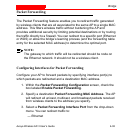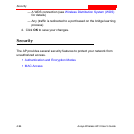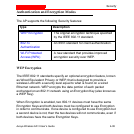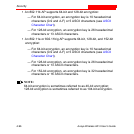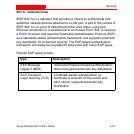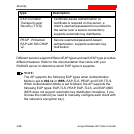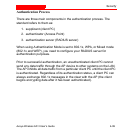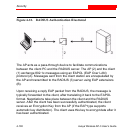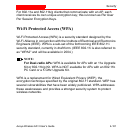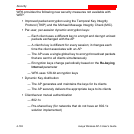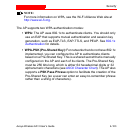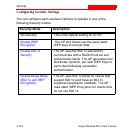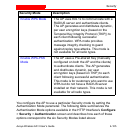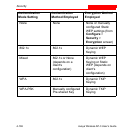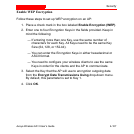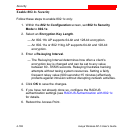
Security
Avaya Wireless AP-3 User’s Guide 4-101
For 802.11a and 802.11b/g clients that communicate with an AP, each
client receives its own unique encryption key; this is known as Per User
Per Session Encryption Keys.
Wi-Fi Protected Access (WPA)
Wi-Fi Protected Access (WPA) is a security standard designed by the
Wi-Fi Alliance in conjunction with the Institute of Electrical and Electronics
Engineers (IEEE). WPA is a sub-set of the forthcoming IEEE 802.11i
security standard, currently in draft form. (IEEE 802.11i is also referred to
as "WPA2" and will be available in 2004.)
NOTE:
For Dual-radio APs: WPA is available for APs with an 11a Upgrade
Kit or 802.11b/g Kit. WPA is NOT available for APs with an 802.11b
PC Card or a 5 GHz Upgrade Kit.
WPA is a replacement for Wired Equivalent Privacy (WEP), the
encryption technique specified by the original 802.11 standard. WEP has
several vulnerabilities that have been widely publicized. WPA addresses
these weaknesses and provides a stronger security system to protect
wireless networks.



